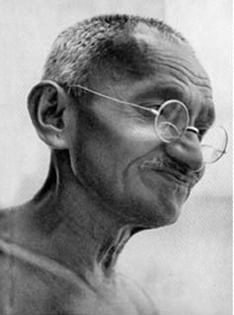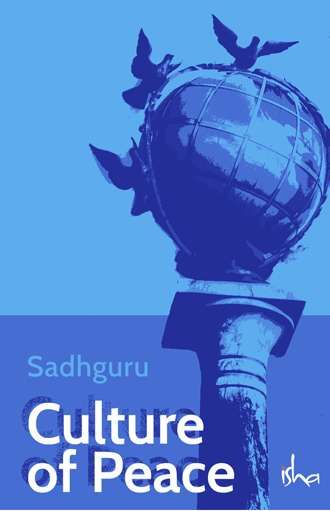Remembering the Mahatma
Sadhguru makes use of Mahatma Gandhi's example to impress upon the importance of commitment in our lives.

Sadhguru: Incredible things are done in the world simply out of commitment. A great example is that of Mahatma Gandhi. If you look at this man, he was not talented or anything special, please see. As a child he did not show great potential. He was not extraordinarily intelligent. He was not an artist, scientist, or even a very good lawyer. He could not successfully practice as a barrister in India, which is why he went to South Africa for a better opportunity. Even there, he was not very successful. But suddenly, the man made a commitment towards something. He got so committed that he became a giant.

I remember what he wrote about his first case at a court in India – he stood up to argue his case and his heart sank into his boots. Does this sound like Mahatma Gandhi? The man went on to move millions of people. With just one incident in his life, suddenly all his identities broke.
He had gone to South Africa to make a living and he was doing okay as a lawyer. One day he bought a first class ticket in a train, got in, and traveled some distance. At the next station, a white South African got in. This man did not like a brown-skinned person sitting in first class, so he called the ticket collector. The ticket collector said, “Get Out!” Mahatma Gandhi said, “I have a first class ticket.”
Subscribe
“It doesn’t matter, just get out.”
“No, I have a first class ticket. Why should I get out?”
They threw Gandhi out of the train along with his luggage and he fell on to the platform. He just sat there for hours. “Why did this happen to me? I bought a first class ticket. Why was I thrown out of the train?” he thought. It was then that he identified himself with the larger predicament of the people. Till then his survival, law, and making money were important to him. But now, he identified with a much larger problem that existed. He just broke that little identification and moved into a much larger identity.
Many humans who are historically known as great beings; this is all that happened to them. They were living with a limited identification. All of a sudden, an event occurred that broke their identities and they were able to relate to a larger process happening around them. They did things that they themselves could not imagine possible.
Gandhi moved millions of people just like that. Not only in India, anywhere in the world you take the name of the Mahatma and there is a sense of respect. All this happened at a time when there were so many leaders who were true giants in India. They were more talented, better orators and better educated. Yet, this man stood above them all, simply because of his commitment.
Whatever happens, life or death, commitment must not change. Truly committed, you express yourself totally, in every possible way. When commitment is lacking, somewhere you lose your purpose. When the purpose of why we are here is lost, there is no question of fulfilling our goals, isn’t it?
So being committed is just something we have to decide within ourselves. If we are truly committed to whatever we have taken up in our life, the results are plenty, you know? If results don’t come, for a committed person there is no such thing as failure. If I fall down 100 times a day, what to do? Stand up and walk again, that’s all.
Commitment does not mean aggressiveness; this must be understood. This is where Mahatma Gandhi’s example is so apt. He was committed to India’s freedom struggle, but at the same time he was not against the British people. That was the best part, wasn’t it? This shows the maturity of the man.

Editor’s Note: Download “Culture of Peace,” first published in print in 2008, is now available as an ebook on a “name your price” basis. In this 22-page booklet, you can read about Sadhguru’s insights into the basis of conflict, misconceptions about peace and how each of us can help to create a generation of peaceful human beings.



